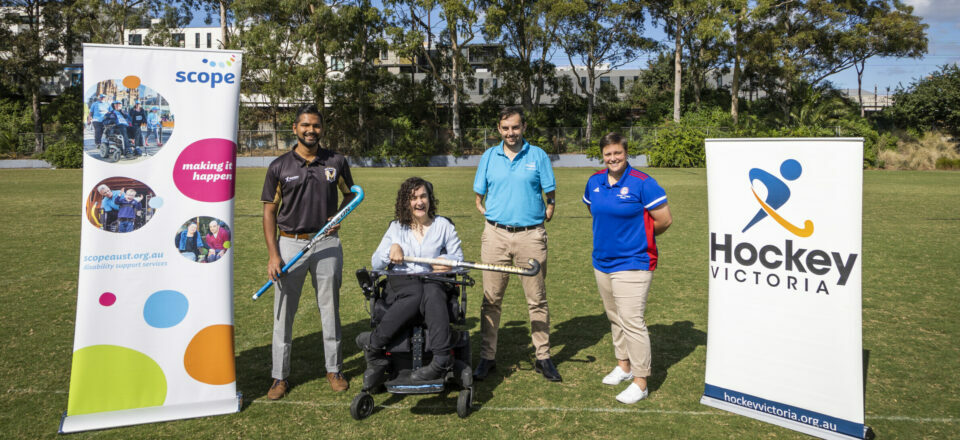Scope wins grant to make hockey inclusive for all abilities
Scope and Hockey Victoria have been awarded $97,480 to develop an inclusive hockey program suitable for people with multiple and complex disabilities.

The 14th of September marks R U OK? Day, a significant reminder to check in with your friends, colleagues and loved ones, including those with a disability. It only takes a simple question to start a conversation – ‘Are you OK?’
According to a recent study conducted by the Australian Institute of Health and Welfare (AIHW), individuals with disabilities are four times more likely to experience heightened psychological distress compared to those without disabilities.
This difference is remarkably pronounced among younger individuals and men with disabilities, highlighting the need for targeted attention and support in these segments of the population.
Did you know that Scope offers a range of Key Word Sign resources to equip individuals with the tools to communicate effectively?
These resources play a vital role in ensuring that people can ask the question, "Are you OK?" to anyone, regardless of their communication needs.
Remember, you don’t have to be an expert or a trained counsellor to ask someone how they are doing. You just need to be a good listener.
There’s no one way to have an R U OK? conversation, but these four steps are a helpful framework:
It is okay to ask for help, so please don’t hesitate to speak up.
For more information on addressing mental health issues for people with disability, visit the Disability Gateway and browse their resources. Are you ready to ask, "R U OK?"